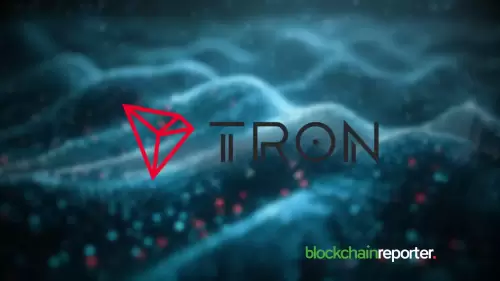Ripple's acquisition of Rail signals a major push in the stablecoin payment arena, leveraging Rail's infrastructure to boost RLUSD adoption and streamline cross-border transactions.

Ripple, Rail, and Stablecoins: A $200 Million Power Play
Ripple's recent $200 million acquisition of Rail marks a significant move in the stablecoin payment landscape. This strategic play aims to bolster Ripple's position and expand the utility of its RLUSD stablecoin. Let's dive into the implications.
Ripple's Strategic Acquisition of Rail
On August 7, 2025, Ripple announced its acquisition of Rail, a stablecoin payment platform. This move is designed to enhance Ripple's existing payment systems and solidify its standing in the stablecoin market. Rail, which already processes a substantial $10 billion annually and partners with over 12 banks globally, brings considerable operational capabilities to Ripple's platform. The integration promises smoother, more cost-effective cross-border transactions and expands Ripple's cryptocurrency payment solutions through a single API.
Enhancing Ripple's Infrastructure and RLUSD Adoption
By combining Rail’s stablecoin technology with Ripple’s XRP Ledger (XRPL), Ripple aims to increase the transaction volume of its USD-pegged stablecoin, RLUSD. This integration could potentially generate billions in additional annual transactions and positively influence the value of XRP. Ripple is already capitalizing on this opportunity through a partnership with MetaComp, which will distribute RLUSD, providing institutional access to the stablecoin on a compliant infrastructure.
A Growing Trend in Digital Payments
This acquisition aligns with a broader trend of traditional financial institutions and corporations adopting stablecoin solutions for treasury management and cross-border payments. Ripple’s move is part of a larger consolidation wave in the crypto and fintech sectors, as companies build more resilient and efficient systems to meet the growing demand for digital payment tools. Recent regulatory filings also indicate a surge in XRP holdings among publicly traded firms, suggesting a strategic shift in how corporations are integrating cryptocurrencies into their liquidity strategies.
China's Cautious Approach to Stablecoins
While Ripple makes bold moves, China is taking a more measured approach to stablecoins. Financial regulators are closely monitoring stablecoin developments and using Hong Kong as a testing ground for digital currency innovation. Compatibility with national conditions and capital control concerns are key considerations. While Chinese state-owned enterprises are showing increasing interest in stablecoin applications, regulators are wary of dollar-backed tokens strengthening US currency dominance.
Looking Ahead: Ripple's Position in the Evolving Landscape
Ripple's acquisition of Rail underscores its proactive strategy to position itself as a central player in the evolving digital asset ecosystem. By expanding its infrastructure and deepening its stablecoin capabilities, Ripple is well-positioned to support the growing adoption of crypto-based payment solutions. As regulatory clarity improves, platforms like Ripple are likely to play an even more critical role in facilitating global transactions and managing liquidity through digital assets.
The Future is Bright (and Stable)!
With Ripple's strategic moves and the increasing adoption of stablecoins, the future of digital payments looks promising. Who knows, maybe one day we'll all be paying for our lattes with RLUSD. Until then, keep an eye on Ripple – they're definitely one to watch!
Disclaimer:info@kdj.com
The information provided is not trading advice. kdj.com does not assume any responsibility for any investments made based on the information provided in this article. Cryptocurrencies are highly volatile and it is highly recommended that you invest with caution after thorough research!
If you believe that the content used on this website infringes your copyright, please contact us immediately (info@kdj.com) and we will delete it promptly.













































































